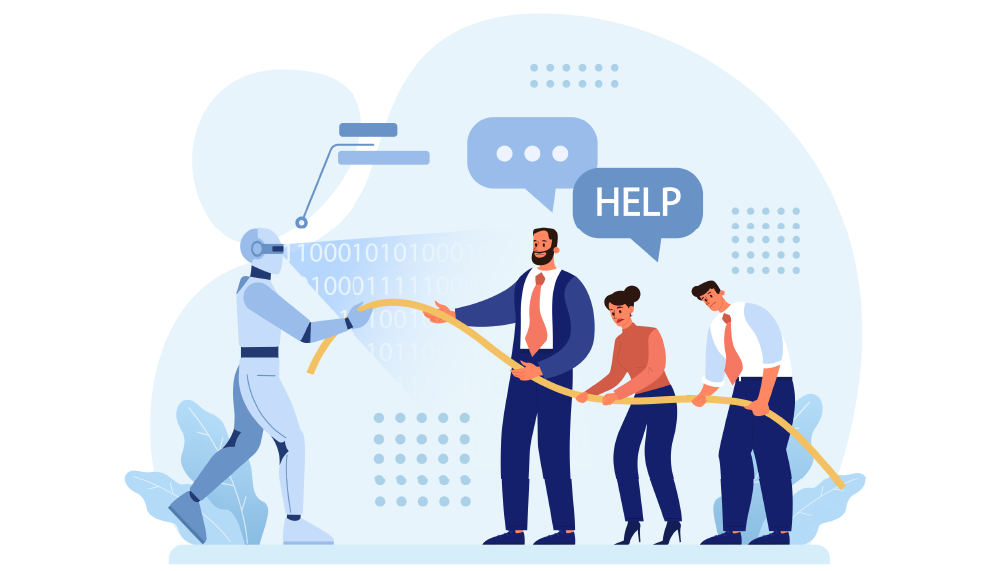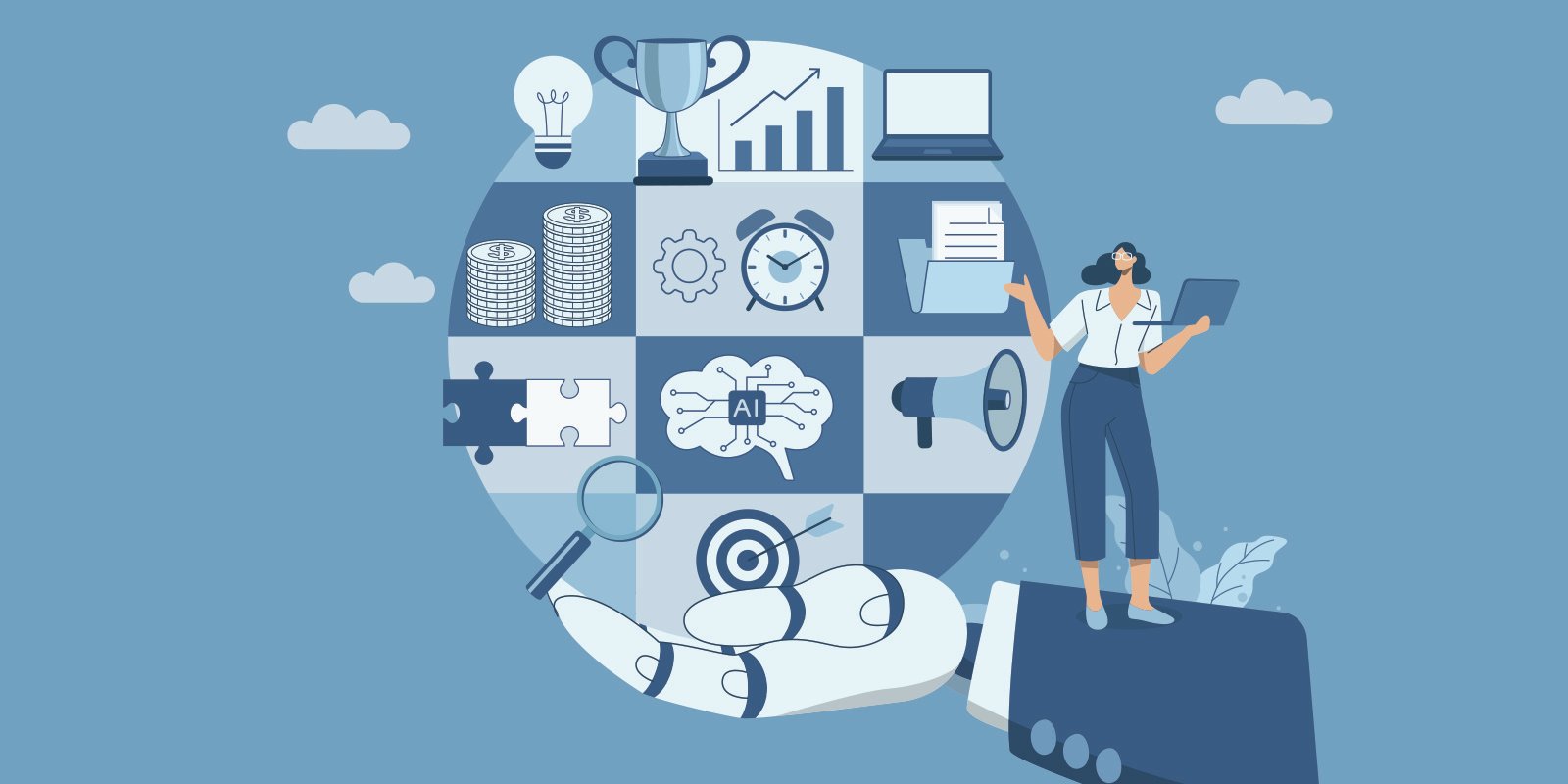Navigating a Leaner Corporate Landscape: Insights on the Future of Work
The workplace is changing rapidly, and businesses must adapt to stay competitive.
3 min read
 Nate Olsen
Oct 29, 2024 11:40:48 AM
Nate Olsen
Oct 29, 2024 11:40:48 AM

In a world reshaped by rapid advances in artificial intelligence, we face a defining challenge: How do we invest not only in cutting-edge AI but in the people who will make it work?
As KPMG’s Global Head of AI, David Rowlands, points out, “...a decade ago, AI was rarely mentioned. Today, it has become central to business discussions.”
64% of CEOs said they plan to invest in AI despite economic uncertainties. Yet, only 38% feel assured that their teams possess the skills to make full use of these technologies. [Survey by KPMG]
This isn’t just a stat; it’s a signal. 🚩
While AI promises to reshape industries, its true potential hinges on a skilled, adaptable workforce. Investing in AI alone isn’t enough.
Leaders must make equal investments in talent development to bridge the skill gap, stay competitive, and ensure these technologies deliver value.
Ten years ago, AI seemed like science fiction or a tool only the tech giants could afford.
Today, AI applications are everywhere, from customer service bots to predictive analytics guiding strategic decisions. The KPMG survey reveals that 92% of CEOs expect to grow their workforce over the next three years, with nearly two-thirds committing to AI investments, regardless of economic headwinds.
Still, it seems as though a significant number of leaders remain hesitant, wrestling with how to invest in AI while ensuring their workforce can keep pace. In the words of Rowlands, “In the rush to adopt AI, companies must not overlook their most critical asset—their people.”
For CEOs who hesitate, the message is clear: AI adoption isn’t optional, but sustainable integration depends on building the right talent.
It’s a deceptively simple equation: new technologies need new skills. Yet, only 38% of CEOs feel confident their workforce can wield AI effectively.
The implications are serious—automation is freeing up time for higher-level strategic tasks, but only for those who are prepared to tackle them.
The KPMG survey also highlights that 33% of CEOs are worried about workforce shortages and an aging talent base—issues made worse by the skills AI demands.
🙌 Without proactive investments in reskilling and upskilling, companies risk being left behind as AI capabilities evolve. 📉
The challenge is twofold: we must navigate this skills gap and, simultaneously, cultivate a culture that attracts and retains the very talent needed to stay ahead.
Leaders looking to close this skills gap aren’t simply hiring data scientists or software engineers.
They’re after a rare mix of critical thinkers, problem-solvers, and adaptable individuals who can leverage AI effectively.
The shortage of such talent reflects a lack of training and proactive talent management in many organizations.
For CEOs, the path forward includes launching internal training programs, establishing educational partnerships, better recruiting strategies for hiring, and collaborating with Professional Employer Organizations (PEOs) that specialize in workforce development for emerging technologies.
PEOs are uniquely equipped to help companies align their talent with business goals, offering workforce strategies that bolster the pipeline of skilled, AI-capable talent.
🤖 Companies that lead in AI are the ones that understand AI mastery doesn’t end with hiring; it’s an ongoing commitment to learning. 🧠
AI has the power to streamline processes and unlock data-driven insights, but it also requires a workforce that can pivot and adapt. Leading CEOs know this, and they foster a culture where adaptability is as critical as technical expertise.
It might mean reskilling existing employees, hiring specialists, or crafting hybrid roles that merge technical skills with business acumen.
Forward-thinking leaders view AI with a healthy dose of skepticism—not because they doubt its potential, but because they understand the consequences of adopting it without preparation.
Companies poised for success are those that see AI not just as a technical upgrade but as a catalyst for cultural and talent evolution.
Investing in the right mix of technology and training helps position ourselves to drive transformation in our businesses rather than be overwhelmed by it.
As AI continues to shape industries at an unprecedented pace, the businesses that thrive will be those that have both the technology and the talent to harness it.
The choice is stark: CEOs who balance AI investments with talent cultivation will be the ones setting the pace, while those who hesitate risk missing their moment.
AI-driven growth can only be achieved when paired with a skilled, adaptable workforce.
For leaders, the question isn’t whether AI will change business but whether their teams will be ready to unlock its potential.
The future belongs to those prepared to invest—not just in AI itself, but in the people who will drive its success.
TAKE IT TO YOUR INBOX.
Join our community. Fill out the form below to get on the email list...

The workplace is changing rapidly, and businesses must adapt to stay competitive.

In the quiet hours before dawn, when most office buildings stand empty, artificial intelligence systems are already hard at work, analyzing workplace...

As back-to-school season rapidly approaches, working parents across the country prepare to face familiar challenges balancing professional...